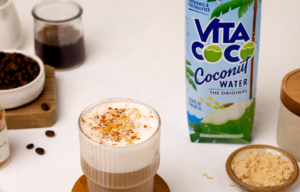
Easy Preventative Tips for Winter Colds and Flus
This article includes affiliate links. We may earn a commission if you make a purchase, with no extra cost to you.
Winter has arrived, and along with the snow, the ice, the slush, and hibernating in your Hygge hideaway, the risk of catching colds and flu increases significantly. The combination of indoor gatherings and frigid temperatures can create an environment where viruses thrive. By adopting a few easy preventative measures, you can boost your immune system and reduce your chances of falling ill and spreading your cold or flu to others.
So, settle in with a generous mug of hot cocoa and we’ll explore various strategies to keep you healthy during the winter months, including hygiene practices, nutrition, exercise, and the role of supplements.
Understanding Colds and Flus
We all know that sinking when we feel a cold coming on — the sniffles, the sneezes, the scratchy throat. But what are colds and flus, really?
Both the common cold and influenza — also known as “the flu” — are caused by viruses. These viruses spread easily through respiratory droplets when an infected person coughs or sneezes. They can also be contracted by touching contaminated surfaces that a sick person has touched within the past 24 hours.
Recognizing the symptoms of colds and flus early — such as a runny nose, sore throat, cough, fever, or body aches — gives you the chance to tackle them head-on. It’s also the perfect excuse to kick back, rest up, and give your body the time it needs to bounce back faster.
Hygiene Practices
When it comes to preventing viral infections, hygiene is the name of the game. Here are a few immune system-boosting, illness-fighting hygiene tips:
- Handwashing: One of the simplest yet most effective ways to prevent the spread of colds and flu is frequent handwashing with soap and water. Spend at least 20 seconds when you’ve been in public spaces or after coughing or sneezing. If soap isn’t available, an alcohol-based hand sanitizer can be a good alternative.
- Don’t touch your face: The eyes, nose, and mouth are entry points for viruses. Avoid touching your face with unwashed hands to minimize the risk of infection.
- Disinfect surfaces: Regularly clean commonly touched surfaces in your home and workplace — doorknobs, light switches, and phones – to eliminate germs that could cause illness.

Nutrition for Immune Support
While that old saw “an apple a day keeps the doctor away, does not work, nutrition does help to prevent illness. Eating a balanced diet rich in vitamins and minerals is crucial for maintaining a strong immune system which helps your body stave off and fight nasty viruses.
During the winter months, be sure to incorporate the following into your meals:
- Fruits and veggies: Citrus fruits (oranges, lemons), berries, spinach, and broccoli are high in vitamin C and antioxidants that help to bolster immunity.
- Whole grains: Foods like oats and brown rice provide essential nutrients that support overall health.
- Lean proteins: Chicken, fish, legumes, and nuts are vital for building antibodies that fight infections.
The Importance of Sleep
Adequate sleep is essential for a healthy immune response. Studies have shown that individuals who sleep less than seven hours per night are more susceptible to catching colds. Aim for 7-9 hours of quality sleep each night to allow your body to recover from stress and strengthen its natural defenses against various illnesses.
Stay Active
Like sleep and nutrition, regular physical activity can enhance your immune system’s functionality. According to the U.S. Centers for Disease Control and Prevention (CDC), you should try to get at least 150 minutes of moderate-intensity exercise each week – broken up into sessions of at least 20-30 minutes each. Activities like walking, cycling, or yoga can improve your physical health and even elevate your mood.
Supplements to Consider
It’s unclear to what extent supplements can help to prevent colds and flus. Still, some researchers believe that the following supplements may boost your immunity against illnesses during the winter months:
- Vitamin C: Known for its immune-boosting properties, vitamin C may reduce the duration of cold symptoms if taken right away at the onset of symptoms.
- Vitamin D: Vitamin D is particularly important in winter months when you have limited exposure to sunlight. Research suggests that adequate vitamin D levels can cut the risk of respiratory infections in half. Nice!
- Zinc: This essential mineral supports immune function and may help to reduce the severity of cold symptoms.
- Probiotics: These beneficial bacteria support gut health and enhance our immune response. Foods like yogurt or supplements containing probiotics can be beneficial.
- Echinacea: Echinacea is often used as a herbal remedy to prevent colds. Some studies suggest it may reduce the risk of catching a cold in the first place.
Incorporating these supplements into your routine – it’s recommended that you consult with a trusted healthcare provider – can provide an additional layer of protection against winter illnesses.

Managing Stress Levels
Who knew? Chronic stress can suppress your immune system. Implementing stress-reduction techniques such as mindfulness meditation, deep breathing exercises, or positive activities into your everyday routine can help maintain mental well-being during the coldest, darkest months of the year.



